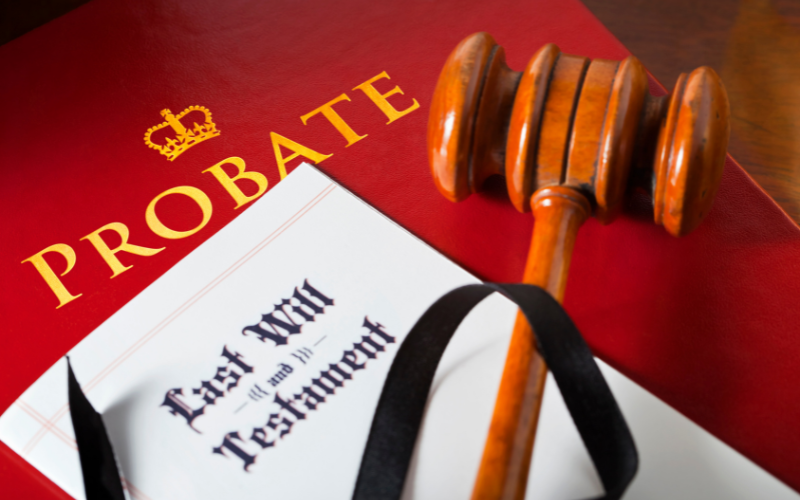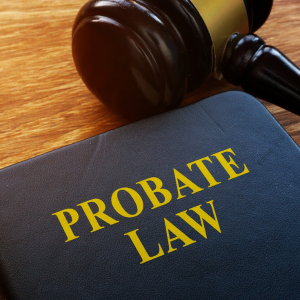
Selling a probate house in Atlanta, GA, can feel overwhelming, especially if you’re navigating the legal process for the first time. With Georgia’s specific probate laws, understanding how to sell an inherited property is crucial for a smooth transaction. This guide provides actionable steps and expert insights to help you successfully sell your house fast for cash in Atlanta, GA, during the probate process, so you can maximize your proceeds, minimize stress, and confidently close the chapter.
Understanding Probate and the Process of Selling a House in Atlanta
People who own homes in Atlanta, their children, and people who want to sell can make better decisions during this tough time if they know how probate affects home sales. The inheritance court gets rid of things that belong to an estate. This can include real estate. You can ensure you follow the steps, know how the estate court works, and know the rules for selling property if you are an administrator, executor, or personal agent. Also, this will cut down on wait times. If you want to sell a large house in Georgia, this base is very important.
The Role of Probate Court in Deciding House Sales
The Atlanta family court decides if and how an estate can sell a house or other property. When someone who lives in Georgia dies, the probate process begins unless all of their assets are moved right away. The probate court manages and distributes assets like homes and other probate real estate to ensure that they are given out properly and to protect children, creditors, and other interested parties.
Everyone selling an estate must know how the family court affects Georgia real estate deals before they do anything else. The court’s job is to check if the will is legal and pick an executor or agent to handle the estate. Before the house is sold, this person’s job is to make a list of everything that is in it, pay off the bills, and file the taxes.
The executor or agent of many Atlanta estates must ask the family court for permission to sell a home. This is especially true for estates with valuable property or wills that aren’t clear. There are estate rules in Georgia, and if there is a will, the person who wrote it must follow them when probate property is sold. The court has to agree to the sale before it can happen. The probate court petition generally says why the property is being sold, such as to pay off debts or give the estate’s property to beneficiaries, and gives specifics about the property.
The succession court then reviews it to ensure that everyone’s needs are met and that the sale is good for the estate. The court might ask that the public be informed about the sale or confirmation meetings so that everything is fairer and clearer. In Atlanta, there is a lot of competition in the real estate market, and court moves can change prices and dates. For guidance through this process, contact us today.
Court Approval and Legal Guidance in Atlanta Probate Home Sales
If many creditors or heirs want the property, the probate court may order evaluations or more than one bid to make the estate more valuable. Getting court approval is important to ensure the deal is legal and good for everyone. Disputes over choices to sell property can be harder to handle when heirs, creditors, or other interested parties are involved.
The court will decide, and it may order mediation or more cases before the sale. It is important to be clear and keep records during the estate sale. Before you sell your house, you should also talk to Atlanta divorce lawyers who know how Georgia court real estate works. Lawyers help the administrator or agent follow the court’s directions, which saves time and money that would have been spent on mistakes.
They know things to help settle arguments and speed up court decisions for estate sales, creditor claims, and court dates. In short, the family court handles estate administration in Atlanta, especially when a house is sold. Rules and laws must be followed in Georgia from the time the case is made until the court approves it and the sale is complete.
Administrators, executors, and heirs can protect the estate’s interests, follow the law, and quickly sell probate property if they know how these things work. You must be proactive, well-informed, and ready to work with a probate attorney in Georgia if you want to go from court supervision to a successful real estate sale.
What Makes an Inherited House Different From Other Properties?
An Atlanta inherited house requires more thought than a regular property transfer. Many houses sell based on market factors, but probate estate properties have legal, financial, and procedural intricacies. From determining the property’s value and addressing debts to satisfying probate court requirements or dealing with creditors, each process differs from the conventional Atlanta real estate transaction. Before selling, executors, administrators, and heirs must carefully manage mortgages, taxes, and legal obligations with the help of a probate attorney.
Legal and Financial Considerations When You Inherit a House

After inheriting a house in Atlanta or anywhere in Georgia, you have legal and financial obligations that set inherited real estate apart from other property transactions. An Inherited House with Siblings adds another layer of complexity since decisions must be made jointly. A probate house is supervised by state-specific probate regulations and court-mandated steps, unlike a private property sale. As an executor, administrator, or beneficiary, you become a property owner and steward for the estate’s duties when you take possession. You, as an executor named in a will or a probate court administrator if no will exists, must accurately identify the personal representative of an inherited house.
Your title is important because only the legally recognized personal representative in Georgia can request court approval for estate property sales, including houses. The petition to open the estate with the probate court authorizes the administration procedure, including paying debts and taxes, dealing with creditors, and selling the residence if necessary. Atlanta probate includes specific judicial scrutiny that might delay or complicate a straightforward property sale.
Georgia law mandates that the estate pay obligations and creditors first. You may have to notify creditors, make public notifications, and inventory estate assets, including the house, for the court. Subject to court approval, the property can be sold when debts, creditors, and taxes are paid. Additionally, a probate attorney is often necessary.
Legal and Financial Responsibilities in Atlanta Probate Real Estate
Lawyers explain complicated probate laws, make sale applications, ensure dates are met, and represent the estate in disputes over inherited property. When you receive a home, money issues come up. The house may not be worth what it’s worth or may have a debt. Sometimes, lenders want short sales. To protect the estate and family inheritance, the executor or administrator must pay the debts and property taxes. Unexpected bills or liens could be put on the house. A court order says these must be paid from the estate’s money before distribution. Homes that are given may be taxed.
In Georgia, where there is no transfer tax, estate property sales may be subject to capital gains taxes after the sale. Knowing the property’s “step-up” basis, or fair market value after the death of the person who owned it, can help the estate and potential heirs escape paying too much in taxes. Keep a succession lawyer close by to ensure you follow state and federal tax rules and protect the value of your estate for your beneficiaries.
Most house sales involve less paperwork and court involvement than this legal and financial disaster. Atlanta bankruptcy house sales require a petition, heir consent, court appearances, and creditor or estate cases. Beneficiaries, creditors, and the probate court can review every personal representative’s decision. This is why honesty and thorough record-keeping are crucial. For newcomers, estate administration, debtor settlement, tax filing, and probate real estate deals can be difficult and time-consuming. Knowing your legal and financial obligations helps you understand Georgia estate law and court opinions.
The heirs and a qualified divorce lawyer can assist you in securing the estate’s assets, preparing the house to sell, settling the bills, and sealing the deal without complications. Asheville homes must have more than value. Fiduciaries must protect children, property, and debtors throughout bankruptcy. Georgians must pay taxes, mortgages, and other debts, and execute court orders during estate sales. Know how to use your gift and be ready for professional support. The process will be simple and pleasant.
How Probate Affects Your Ability to Sell a Property in Georgia
When navigating the sale of a probate property in Georgia, understanding how probate affects your timeline, obligations, and outcome is crucial. The process introduces a unique set of challenges distinct from standard real estate transactions, primarily because it involves oversight by the probate court, adherence to probate law, and careful administration of the estate’s assets. Factors like court approval, creditor claims, and the role of the executor or administrator all influence how and when you can move ahead with a sale. Mastering these elements ensures a smoother experience and a legally sound property sale.
Securing Court Approval to Sell a Probate Property

Georgia probate property is sold by the court. Georgia probate law regulates estate transactions more strictly than real estate sales. If not automatically passed on, a deceased’s estate, including real estate, must go through probate. The probate court appoints an executor or administrator without a will. This ceremonial role allows the bearer to represent the estate, settle debts, negotiate with creditors, and sell estate property.
The personal representative must petition the probate court to sell the property formally. Please show how selling the house or property helps the estate. Common reasons include debts, creditors, estate taxes, and fair asset distribution. Courts protect heirs, creditors, and estate stakeholders.
Georgia probate laws may require accountings, creditor notices, and supporting documents to sell property. The court may hear heirs, creditors, and interested parties’ objections to the petition in disputed cases. The personal representative can sell probate property with court approval. Legality in Georgia real estate deals sometimes requires court approval. Probate lawyers are needed presently. These specialists write petitions, answer court questions, and verify Georgia probate law compliance. A missing filing or a late answer could delay court approval for weeks or months, so legal representation is necessary.
Court scrutiny goes beyond approval. Estate-complexity requirements may increase. The court may order the personal representative to sell, solicit, or auction the house. Estate benefit should be maximized without undervaluing the property to harm creditors or beneficiaries. The court may set a minimum price using an independent appraisal. This evaluation ensures creditors and heirs receive a fair sale allocation, not simply the estate.
Communication and Creditor Compliance in Georgia Probate Sales
Probate real estate requires communication between the court, the creditor, and the heir. The personal representative must inform estate stakeholders of the property status and accepted offers. Failure to disclose or implement instructions might complicate estate administration and lead to lawsuits. Creditor claims also delay court approval. Georgia creditors must submit estate claims within a certain timeframe after notice.
The probate court will check that an estate has enough money to pay legitimate creditors before selling a residence. Selling probate property without addressing creditor interests risks judicial denial or reversal, delaying the purchase. This path explores probate-documented personal representative conduct. The court requires creditor letters, receipts, real estate agency correspondence, and property sale confirmation.
Georgia’s probate process is more formal than a regular real estate sale, but court approval reassures buyers and protects sellers from creditor or heir disputes. Once final clearance is granted, title transfer moves faster. Because probate involves multiple steps and heavy paperwork, sellers should work with a probate attorney, real estate agent, and financial advisor. Their expertise ensures compliance, smooth sales, and proper handling of debts and taxes. Quick, accurate management of each step reduces delays, prevents lawsuits, and protects heirs’ inheritance. This turns a complex legal process into a successful probate home sale in Georgia.
Steps to Prepare Your Probate House for a Sale
Want to sell a house in Atlanta, Georgia, that was given to someone in bankruptcy? You need to think about both the legal and practical parts of estate administration. Keep the property safe, pay off any loans or bills, work with an estate lawyer, and know what the court wants. These things will help you win. Executors and managers can use these steps to keep things in the estate organized in a way that follows Georgia’s rules for inheriting. This will also keep things from getting mixed up, which could slow down the process. This speeds up the sale and protects the house and other valuable items in the estate.
Essential Tips for Selling a House During the Probate Process
If someone dies in Atlanta, Georgia, and their house needs to be sold, it’s not the same as any other time. An executor mentioned in a will and approved by the court is the only person who can handle the estate. If there is no will, an administrator can do it. First, they have to ensure the property is safe, let the lenders know, and make a list of everything that belongs to the estate. Also, they have to look over and settle bills that haven’t been paid, like taxes, mortgages, and creditor claims. These must be paid by law before a house can be sold or gains given out.
Next, make a list of all the bills and property. Then, ask the court to agree to the plan. When someone sends a letter or a request, a probate lawyer ensures they follow the law. The court will only allow a sale if enough information is given to the creditors and the deal is good for the estate. In Atlanta’s competitive market, it’s also important to clean, fix up, or get the house ready so that it sells faster and for more money. Executors must keep careful records of all costs and keep the court, creditors, and children informed at all times.
Being open and talking to each other are very important. The court might want more than one bid or public notice, and if debtors or family members don’t agree, it can slow down the process. These professionals can help you avoid trouble, make deals, and get written court approval before the closing. Judges say that the money has to be split up so that bills are paid first, and then the rest goes to people who deserve it. If Atlanta sellers follow the rules, stay organized, and are open and honest, the probate process will go faster. In every step, Nance Homebuyer can help guide you through the process.
Checklist for Ensuring Your Probate House Gets Sold Successfully

Atlanta estate house sales need to be carefully planned, talked about a lot, and followed very closely regarding money and the law. Anyone in charge of selling the estate can keep track of all the steps with the help of a plan. It will be easier to handle the estate, there will be less waiting time, and the home or land will be worth more. For those in Atlanta, these steps can help you put your divorce property on the market and sell it.
1. Confirm Legal Standing and Gather Documentation
To sell estate property, you must be an agent, administrator, or personal representative. So, it’s important to know what your job is. Find out all the court orders, requests, permits, and papers from the estate person and have them signed off on before you try to sell the house or land. Get the most up-to-date property deed, tax records, mortgage information, and letters from creditors for the sale and control of the estate in court.
2. Complete a Thorough Inventory and Appraisal
When someone dies in Georgia, they have to list their belongings, which include the house and anything else that can be sold. Talk to an expert who has worked with people who have been through bankruptcy to determine how much the house is worth. You can set a fair price, make sure your creditors are happy, and give the estate court a clear picture of your case to sell. They want to sell because they need the money to pay their bills.
3. Notify All Interested Parties and Address Creditors
Georgia law says that debt holders, collectors, family members, mortgage companies, and other groups must be told. As the court tells you, keep careful records of your bills and send warnings to your creditors. All loans, bills, and fees must be paid off by the estate before or during the sale.
4. Consult a Probate Attorney
Atlanta probate lawyers are used to writing and turning in court papers on time, like requests for power to sell. Someone will be hired to defend the estate in court, at sales, in disputes with creditors, and in management.
5. Secure the Property and Prepare It for Market
Change the locks and keep the house in good shape so it doesn’t lose value when it’s time to sell. Clean up, declutter, and set up Atlanta homes for sale. During administration, the estate can pay for work to be done by the succession court and the children.
6. Petition the Probate Court for Sale Approval
You should tell the probate court in a detailed plea that you need to sell the house because of estate duties, taxes, and giving the money to your heirs. This depends on why the property is being sold, what the debtors have said, and how much the property is worth. The court may order either an appraisal or a competitive market study. There is always a court order you should follow before you sell or list your home.
7. List and Market the Property
Work with an Atlanta estate salesperson as soon as you get permission. Legal and estate information about the property should be in marketing handouts. Putting up ads is the best way to sell the house quickly, follow the court’s rules, and get serious buyers.
8. Evaluate Offers and Complete Sale in Court Compliance
Deals from buyers much less than what the house is worth should be looked at by everyone and accepted by the court. If you take an offer, you must follow the steps for Georgia administration. With the money from the sale, you must pay off any debts, mortgages, or taxes due and give the court and anyone else interested a full report of the deal.
9. Distribute Proceeds and Close Estate Obligations
The probate court tells you to pay off all the bills and taxes, and then give any assets that are left over to the heirs, as the will or Georgia law says. Finish the court accountings to manage the estate and meet the law’s requirements.
If you need to sell your house fast for cash in Marietta, GA, officially, and to both beneficiaries and creditors, our list will help you do it. This well-thought-out plan helps Atlantans sell their homes and keeps your job as an estate agent safe. If something goes wrong with a probate sale in Atlanta, divorce lawyers and real estate agents must help immediately.
With the right knowledge and tips, Atlanta estate homes sell very quickly. Executors and children who know what to do at each step and get good help can achieve the best results. You can meet with us or get our free guide on how to sell an estate house. We want people in Atlanta to be happy when they sell their probate home.
Key Highlights
- Probate house sales in Atlanta involve complex legal steps, court approval, and specific Georgia requirements to protect heirs and creditors.
- An executor or administrator must be officially appointed to handle the sale, settle debts, and manage estate property.
- Securing court approval is necessary before listing or closing on a probate home in Georgia.
- Preparation includes property security, appraisals, notifying creditors, and maintaining transparent communication throughout the process.
- Enlisting a probate attorney and real estate experts ensures compliance, minimizes delays, and maximizes estate value for beneficiaries.
Ready to sell your home? Whether you need a fast sale or want to avoid costly repairs, Nance Homebuyer simplifies the process. We provide fair cash offers, handle all the details, and give you peace of mind from start to finish. Have questions or want a no-obligation offer? Call us today at +17707582729 and get started immediately.
Helpful Atlanta Blog Articles
- Selling a Probate House in Atlanta, GA
- Can I Sell My House if It is in Foreclosure in Atlanta, GA
- How to Sell an Investment Property in Atlanta, GA
- Paperwork for Selling a House by Owner in Atlanta, GA
- Navigating an Inherited House with Siblings in Atlanta, GA
- Selling a House with Foundation Problems in Atlanta, GA
- How Long After an Appraisal Can You Close in Atlanta, GA?
- How Long Can a Seller Stay in the House After Closing in Atlanta, GA
- Can Heir Property Be Sold in Atlanta, GA?
- Can You Sell a House As Is Without Inspection in Atlanta, GA?
- Do I Need a Lawyer to Sell My House in Atlanta, GA?
- Tax Implications of Selling Home in Atlanta, GA
- Sell a House with Title Issues in Atlanta, GA
- Sell a House with a Squatter in Atlanta, GA

